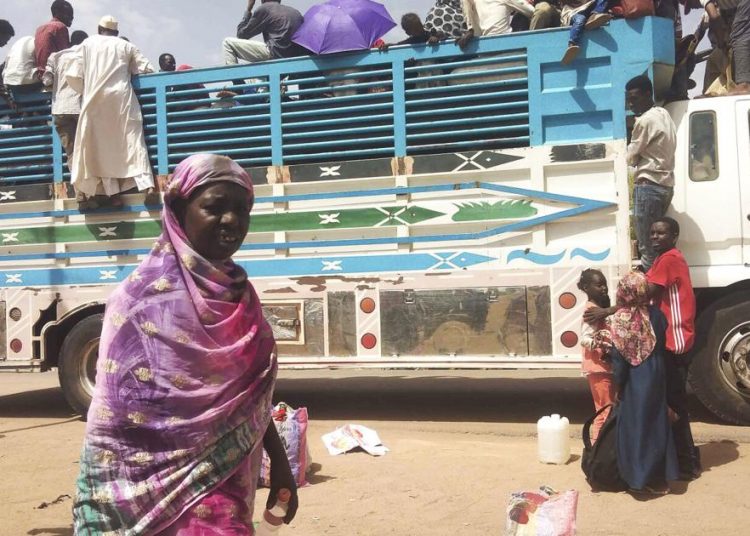GENEVA – Dire predictions about escalating hunger in Sudan have tragically come true, as conflict-induced food scarcity has plunged 20.3 million people into severe acute hunger, the UN World Food Program (WFP) was quoted by the UN media center as saying.
Of that figure, 6.3 million people – 13 per cent of Sudan’s population – are experiencing emergency levels of hunger – classified as Phase 4 of the Integrated Food Security Classification – just one step from famine, with the conflict continuing to disrupt access to humanitarian aid and forcing millions to flee their homes.
“The operating environment in Sudan is without a doubt the most challenging that I have experienced in my career,” said Eddie Rowe, WFP Country Director for Sudan, recalling his more than 30 years with the UN agency.
“Since mid-April, the conflict has continued to spread, and its dynamics have become increasingly more complex. Gaining access to people in need of life-saving food assistance has also become more challenging and increasingly urgent.”
Earlier in August, the Food and Agriculture Organization of the United Nations (FAO) raised a dire warning about the escalating food crisis in the Sudan. As conflict and economic decline continue to ravage the country, urgent and intensified humanitarian support for rural communities is urgently needed.
According to the latest Integrated Food Security Phase (IPC) projections, more than 42 percent of the population in the country, are experiencing high levels of acute food insecurity (IPC Phase 3 or above) between July and September 2023. Compared to the results from the last IPC analysis conducted in May 2022, the number of highly food insecure people has nearly doubled.
With 14 million people facing Crisis (IPC Phase 3) and nearly 6.3 million people facing Emergency (IPC Phase 4) levels of acute hunger, the situation is critical. The states most severely affected are grappling with active conflict, including Khartoum, South and West Kordofan, and Central, East, South and West Darfur, where over half of the population is facing acute hunger.
FAO’s response to the crisis has been swift and comprehensive. Despite the complex security conditions, the Organization has procured 8 840 tonnes of cereal (sorghum and millet) and okra seed, reaching more than half million farming households across the country with the support of the Government of the United States of America, Norway, Germany and the Kingdom of the Netherlands, and the Central Emergency Response Fund. The emergency seed distribution campaign aims to expand to reach up to 1 million farmers in time for the planting season, ensuring sufficient cereal production to cover the needs of up to 19 million people for a year.
FAO’s efforts to combat the food crisis are hampered by limited resources. The Organization urgently requires USD 65 million to reach 1 255 000 vulnerable households (almost 6.3 million people) and provide agropastoral households with quality seeds and training for the 2023 winter and 2024 summer farming seasons.






Discussion about this post